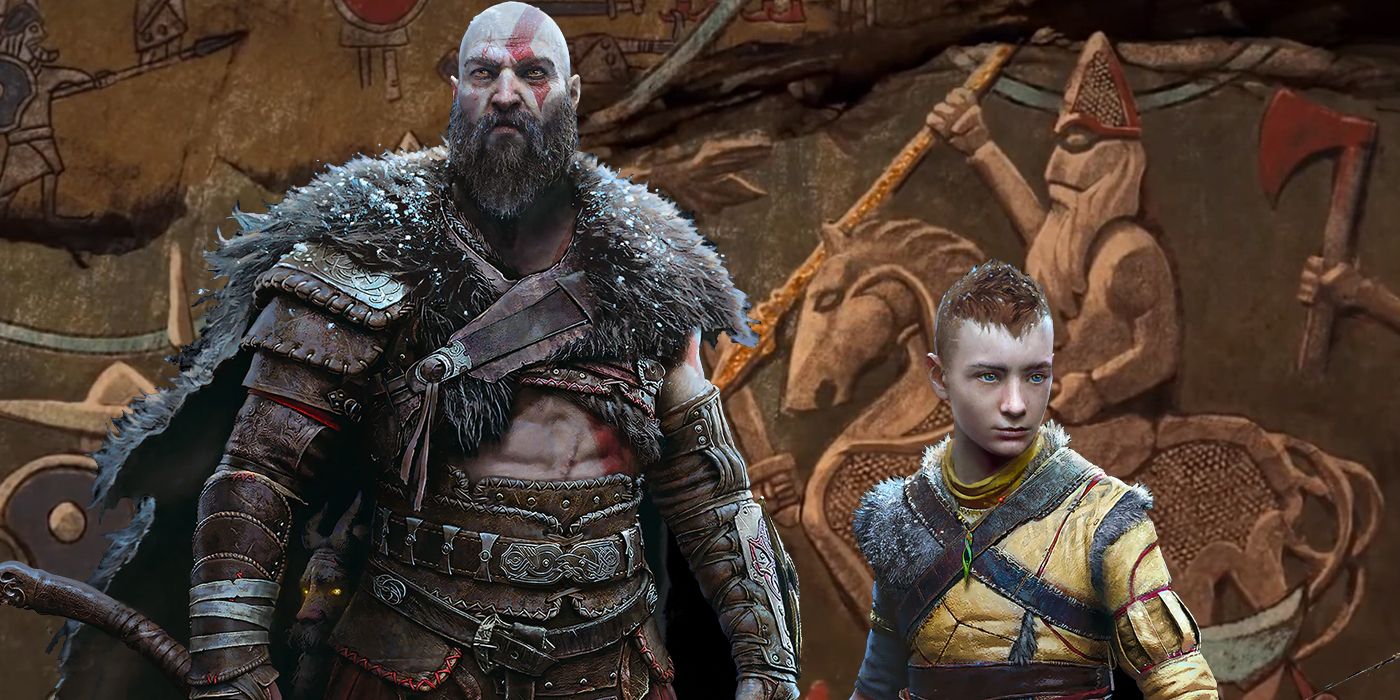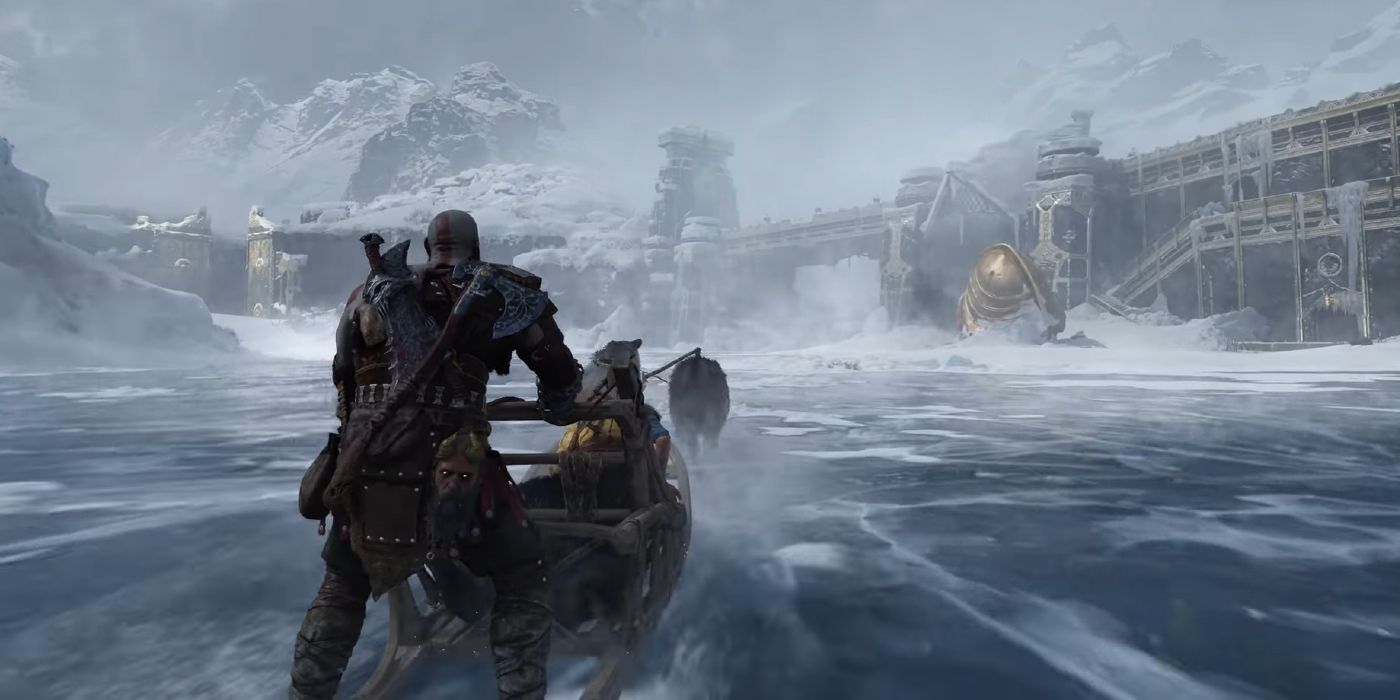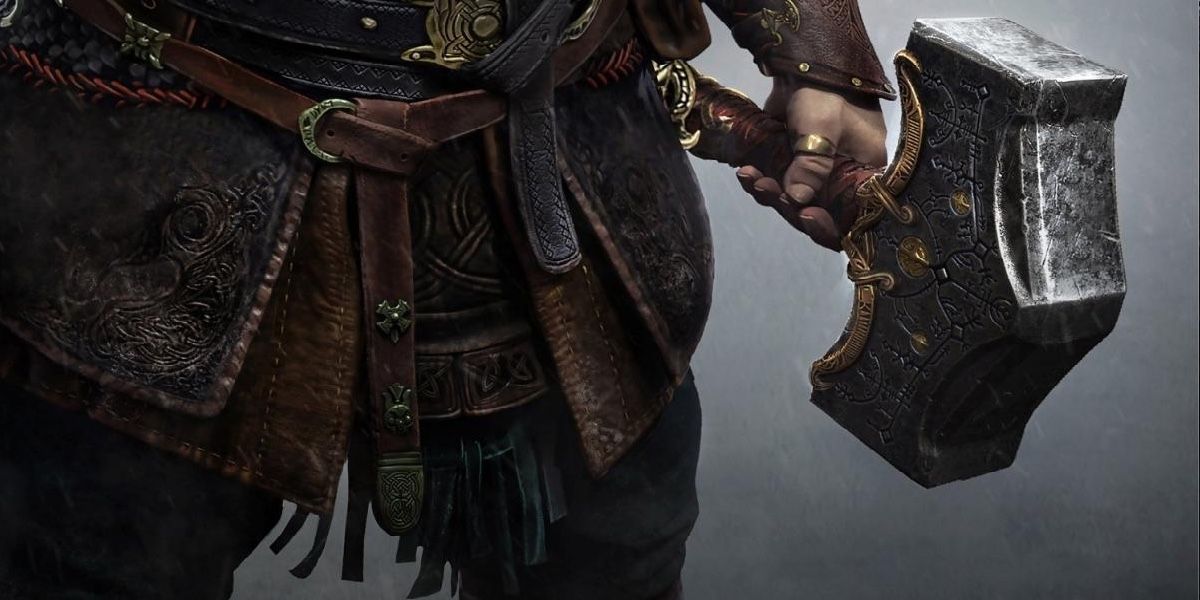As with many popular video games anticipating a sequel, theories about the forthcoming God of War Ragnarök are numerous, though most of them are likely to be proven wrong. These theories tend to be founded on small things – a glimpse of a tapestry, a hole in a story, a psychological analysis of character motivations. Theories like these can work on players’ imaginations and get them excited about the coming game, but absent any hard evidence, most theories turn out, in the end, to go unfulfilled.
It is perhaps not surprising that God of War Ragnarök – scheduled for release on November 9, 2022, from Santa Monica Studio and Sony Interactive Entertainment – should inspire an abundance of theories about its content. Set three years after 2018’s God of War, Ragnarök’s story features Kratos and Atreus at a time when the Fimbulwinter is drawing to a close. This marks the imminence of Ragnarök, an apocalypse that will destroy the earth and the gods who rule it. Kratos and his son Atreus – revealed in the previous game to be the reincarnation of Loki, the trickster deity of the Norse pantheon – will travel the Nine Realms, enlisting the help of the god Tyr and coming into conflict with Thor, Odin, and Freya as they search for a way to prevent the end of the world.
While elements of its setting and story were revealed in an explosive God of War Ragnarök gameplay trailer that appeared as part of Sony’s September State of Play Showcase, there remains tremendous ambiguity surrounding the game overall. Facing apocalypse and squaring off against some of the most renowned and powerful deities in the Norse pantheon, players have every right to wonder how the protagonists will deal with these challenges, where their journey might take them, and what sorts of puzzles, weapons, and characters they might encounter along the way. While most, if not all, the theories about the game are liable to be proven wrong in the end, it is entertaining to review some major ones and to imagine, albeit briefly, the possible worlds they conjure up.
Theory: Father-Son Tensions Flare In God Of War Ragnarök

With Atreus now a teenager, it is not a stretch to predict that tensions will flare between the boy and his domineering father Kratos in God of War Ragnarök. Theory has it that fatherhood is a major theme in the upcoming game, given the difficulties established in God of War between Kratos and Atreus, including the fact that Atreus is a half-giant known to his mother as Loki, a fact of which Kratos had been unaware. The new game is also known to feature Odin, chief among the Norse gods who – despite being called the Allfather – is a notoriously awful father (e.g., imprisoning his son Tyr and telling the world he is dead as a punishment for defying him). Based on unauthorized excerpts posted to Reddit from the Ragnarök art book, fans have theorized that Odin will interpose himself between father and son, trying to woo Atreus to join the Aesir and embrace his godhood as Loki.
The theory is attractive for the tension it would create between Kratos and his son, but Odin (who was first revealed in a God of War Ragnarök trailer last summer) is less likely to want Atreus on his side than he is to want him dead, given the latter’s role in bringing about Ragnarök. Atreus, as Loki, is the father of Fenrir, the giant wolf who is ultimately destined to kill Odin during Ragnarök; and though it would require an alternative timeline or else a form of time travel to make sense, killing Loki as a boy would prevent him from fathering Fenrir later on. Defenders of the theory can argue that Odin’s ploy to win over Atreus is a prelude to killing him without having to deal with Kratos, but that seems a rather elaborate evasion for the god of gods. While tension between Atreus and Kratos is a foregone conclusion (and was depicted in the September trailer) and Odin may indeed be involved in it, how and why this happens is likely to differ from the original fan theory about God of War Ragnarök.
Theory: Kratos & Atreus Return To Greece In Ragnarök

YouTuber Kaptain Kuba came out with an interesting theory early in 2022, suggesting that Kratos and Atreus will return to Greece in God of War Ragnarök to recover an item that Tyr gave the Greeks following the destruction of their lands by Zeus and Kratos and the collapse of their pantheon. This theory derives from a tapestry shown in the previous game in which Tyr is seen presenting people in togas with an unidentified, oblong object. Kaptain Kuba theorizes that Tyr will send Kratos and Atreus to Greece to retrieve this object to restore the Norse pantheon in the aftermath of Ragnarök.
The theory is intriguing, based on a great deal of research and a good understanding of ancient mythology. However, while the new GoW Ragnarök trailer shows Tyr’s story role, it makes no reference to Greece, nor does it contain any suggestion that the protagonists will travel there. Instead, the trailer makes clear that the game will follow Atreus and Kratos as they work to prevent Ragnarök, rather than trying to save the world in its aftermath, making this theory difficult to support.
Theory: Thor’s Mjölnir Will Be A Usable Weapon In Ragnarök

Mjölnir, the mighty hammer wielded by the god Thor, will be equip-able by players in the forthcoming God of War Ragnarök, according to a popular but unsubstantiated theory. The claim is based on a 16 inch replica of the hammer included as part of the God of War Ragnarök Collector’s and Jötnar Editions, available for PS4 and 5. Fans have noted that the replica contains rune slots that would allow customization of the weapon, suggesting that it will be available for players to use for in-game combat.
The idea is appealing, as the opportunity to wield Thor’s Mjölnir would make many players’ dream come true. But Thor and Mjölnir, it is well known, are inseparable, meaning the only way a player could use the weapon would be to pry it from Thor’s cold, dead hand. And, if Thor is the major antagonist in the game (as publicity suggests), then it is highly unlikely that he would lose his weapon prior to being defeated in a final boss battle. If taken from Thor, Mjölnir (contra this GoW Ragnarök theory) would only be available toward the very end of the game, when players would have little opportunity to use it. It is more likely that the people who manufactured the replica knew little of the game content and left players with an enticing red herring in the form of rune slots.
In some ways, fan and internet theories about an unreleased game are testaments to the quality of the game itself. In the case of the God of War franchise, the in-game world, storyline and characters are so fully realized and compelling that they inspire fans and writers to dream, speculate, and hope. When it finally appears, God of War Ragnarök may disappoint some theorists, but will likely surprise most players by the turns its story ultimately takes.




